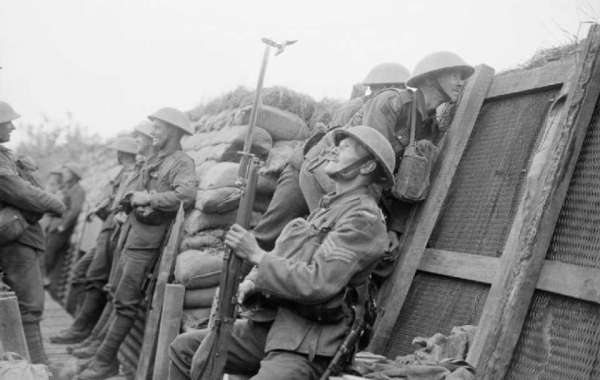The Prevention of WWI
Introduction
Despite the fact that World War I is one of the two most destructive events of the twentieth century that resulted in deaths of millions of people and extensive financial damage to the countries involved, it remains the subject of much debate. The reasons for the debate include the cause of the beginning of the armed conflict between the participating states, and whether there was another option rather than to attack. Currently, the widely acknowledged reason for the start of World War I is the assassination of Austrian duke Franz Ferdinand. However, the armed conflict did not start the same moment, hour, or even day of the tragic event. Instead, the time difference between the two occurrences reached several days. This is why there are some assumptions that World War I could still be halted, because the states had enough time to negotiate and resolve the situation in a peaceful and diplomatic manner. Even despite the fact that the political environment was getting more strained some time before 1914, there are reasons to suppose that World War I could be prevented, and the following paper will concentrate on the factors that support this position as well as those that did not allow implementing the peaceful resolution to the conflict.
How It Started
The official explanation of the reasons for the beginning of World War I is the assassination of Austrian duke by a man of Serbian origin. Due to this event, thirty-seven days later Germany, the ally of the Austrian Empire, attacked Serbia, which was an ally of other powerful political bodies of that time, such as Russia, Great Britain, and France. It is reported that the heir of the Austrian emperor did not necessarily receive much respect and significance from that time’s Emperor, and his loss would not be highly sensible to the empire; however, the reaction was significant. Although it was later established that the assassination was performed by a representative of an independent secret organization, the Austrian Empire, as well as its allies, accused Serbia of being related to the crime.
The genuine reasoning behind the accusation was most probably not the actual event, but rather imperialistic motives and the desire of Austria to spread its influence over the Balkans by suppressing the nationalist movement, which was gaining strength in the region, specifically in Serbia. Thus, the assassination created the conditions for the implementation of the long-desired intention, and, consequently, Austria required Serbian government to surrender and become dependent on the Empire. The latter expected the Balkan state to either capitulate or reject the demand, which would justify attack and reaching the goal by military means. However, Serbia used its relations with Russia and asked the state to assist it in the argument with the Austrian empire. At the same time, Austria turned to Germany for help and received a confirmation from German government that in case of any military actions, the latter would provide extensive support. Meanwhile, Russia, the ally of Serbia, declared war on the Austrian Empire, and the latter, having gained support from Germany, responded .
Thus, there was a set of related events that eventually initiated World War I. This chain reaction started from the assassination of the heir of Austria and ended with Russia declaring war on the latter. Although the conflict was local at the beginning, the number of participants increased within one month. Therefore, there emerges an assumption that these events did not occur randomly, but human factor contributed to their development to a significant extent. At the same time, it appears that due to the fact that thirty-seven days passed between the assassination and the beginning of the war, there was enough time to solve the conflict in a peaceful manner. Consequently, it is possible to assume that since so much effort was directed to escalation of the situation by Germany and Russia, which supported two opposing parties of the local conflict, World War I could be prevented.
Reasons Why WWI Could Be Prevented
There were signs of the upcoming big events in Europe several years before the beginning of World War I in 1914. The biggest powers of that time, which later became the initial participants of the armed conflict, were investing large amounts of money into their military forces. For instance, Germany was putting much effort and finances into construction and strengthening of its navy fleet; however, Britain, which was dominant in the sea at that time, could not stand aside such situation and expanded its sea army as well. At the same time, Russia, which was another great power in Europe at the beginning of the twentieth century, started the process of mobilization, which enables it to prepare the army to confrontation six weeks after the beginning of the process. Overall, the assassination in Serbia is believed to be a mere pretext, whereas the real reasons for the outbreak of war are very different. To be more exact, they were related to the great powers that existed and developed at that time. Serbia and events therein created an opportunity for the arms race that had been progressing for a long time by then to result in a confrontation between the countries. Thus, there was an actual need for the war to start in order to satisfy the imperialist demands of the world’s rising powers and reshape the continent in accordance with new requirements.
However, since these events were initiated and forced to develop more rapidly, it is possible to suggest that there were ways to prevent further escalation of dramatic events and the outbreak of war. Nevertheless, it should be taken into consideration that the vision of events now and their perception at the beginning of the twentieth century are very different due to the realities of life that have changed drastically in due course. Today, the review is more critical and accurate than the politics and intentions of the countries over one hundred years ago.
The simplest way to prevent World War I seems to have been prevention of the assassination of the Austrian heir. Apparently, there had to be a certain type of guard at that time that was supposed to provide security to the duke. However, they failed to do so, and the duke was killed as a result of their negligence. There is a strong probability that this happened due to former aggression of Turkey and Austria in the Balkans, which forced local smaller nations to start fighting for their independence from the aggressors. Therefore, the assassination in Serbia may be regarded as an effort of the nation to protect its land from the enemies. Although the impact of the action was rather significant, it was not the only act of protest. Therefore, this conclusion leads to the second suggestion on how World War I could be prevented.
The assassination of Franz Ferdinand resulted in a political response of Austria presented in the form of an ultimatum to Serbia to surrender. However, Vienna knew that it could rely on Germany and expect any support from it in case of an armed conflict. Therefore, there would have been no further escalation of events, and the scale of the conflict would have been smaller if Germany had not backed Austria and had not promised to provide support to the empire. If this had not occurred, the conflict would not be resolved; however, it would have remained local, which would have saved millions of victims. Nevertheless, the chain reaction was triggered and agreements had to be followed. Clark suggests that there was not a single event that led to the start of the conflict, but rather a series of them that accumulated and accelerated the flow of fateful events. If it had not been for treaties between the states involved and obligations of their allies, it is possible that World War I would not have occurred.
At the same time, everything could have been different if the countries that were warring against each other after the assassination of the Austrian duke did not compete for military advantage. It is a fact that much was invested in the armies of the participating states before 1914. Consequently, there arose a need to receive income from these investments, and conquering of new territories was one of the best options. Therefore, if the states that were fighting in World War I did not need to return the money invested in armour, the international conflict might have been prevented.
Finally, Austria, Serbia, Germany, France, and Russia could have solved the problem in the framework of politics and diplomacy. It is obvious that the death of such an important person as the heir of the Austrian Empire is a dramatic event; however, it is not worth millions of lives of other people. Therefore, diplomats of the states involved in World War I should have predicted that inability to reach an agreement could result in a costly and devastating conflict. The best option at that time seems to have been negotiation or, at least, imposing sanctions but not conducting an armed attack and involving allies into a local war. In any case, there were options to prevent World War I. Firm actions should have been taken immediately after the events in Serbia, and the leaders of the dominant powers had to be confident that an armed conflict was not the correct choice for their states and people.
What Was Learned
Post-war violence and social and financial consequences of World War I have been a clear lesson for both participating and neutral countries on what should be avoided so that such confrontation did not occur again. This particular international armed conflict has shown that a local argument should be kept within its borders at all costs. Besides, the countries have learned that imperialism is not the political course that is beneficial for efficient development of a country, and that large investments in the military sphere are not likely to be advantageous, because the money input needs to result in a certain income, which might eventually result in a war.
Conclusion
Overall, despite the fact the beginning of World War I was the consequence of a number of interrelated events and actions that preceded the assassination of Franz Ferdinand, which is considered to be the primary motive for the start of the conflict, there were a few ways to prevent it. First, the killing could be prevented with the proper protection of the heir. Secondly, Germany and Russia should not have pledged to support the two sides of the initial conflict. Besides, the participants of the war should have invested less in their armies. Finally, due to the fact that the war started a month later after the assassination, there was enough time to solve the issue using political and diplomatic measures and keep it local instead of making international.
Both WWI and WWII are the most horrific episodes in the history of all humanity and everyone should remember these events. History is that interested the most professional writer - Leila Johnson. If you want to read more or buy history research paper online at EssaysWorld.net writing company.






